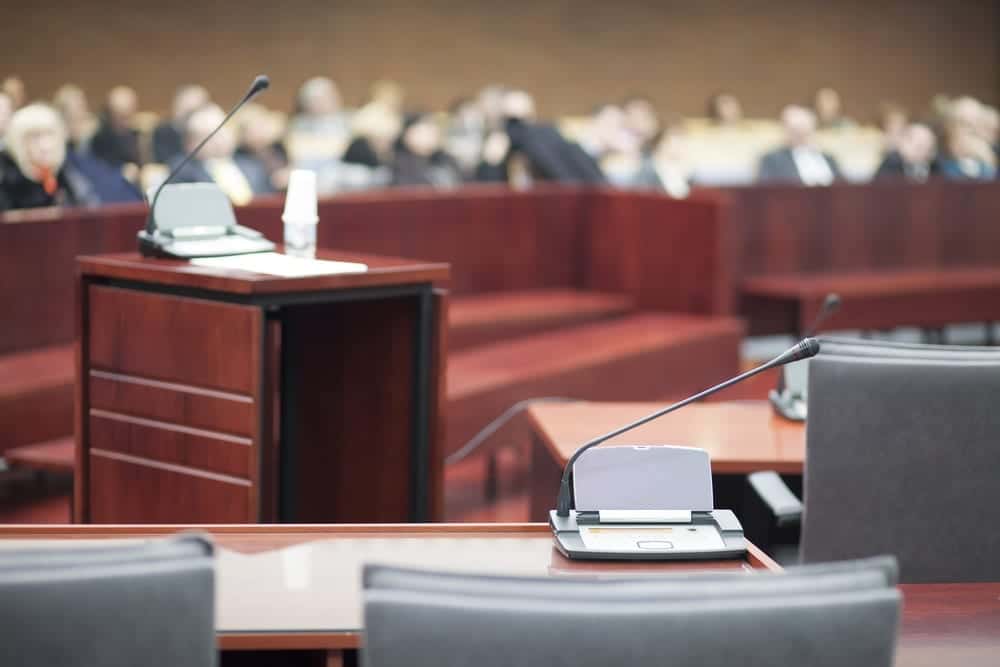
Many people involved in litigation will hear attorneys say, “We are filing a motion to dismiss,” or that they are considering filing another motion. Generally, motions are used before and after trial to compel a judge to reach an outcome a party seeks. There are many types of motions. The following motions are common or interesting motions frequently used to fight criminal charges.
This motion is frequently used by defendants who feel that evidence should not be used in a trial. Defendants usually argue that their rights were violated under the United States Constitution and or their state constitution, and therefore the evidence was unlawfully obtained and should not be presented to a jury. These motions are commonly used and are often relatively successful.
If someone pushes to file a motion to suppress a key piece of evidence that makes the state’s case like a testimony or illegally obtained evidence, it can result in charges being dropped altogether.
Unreasonable search and seizure is prohibited under the 4th Amendment of the U.S. Constitution as it reads “[t]he right of the people to be secure in their persons, houses, papers, and effects, against unreasonable searches and seizures, shall not be violated, and no Warrants shall issue, but upon probable cause, supported by Oath or affirmation.” A successful motion can result in all evidence gathered in the search and seizure to be thrown out.
There are two common motions to suppress confessions: motion to suppress confessions given without a Miranda and motion to suppress confession with due process violation. The right not to be a witness against yourself is protected under the 5th Amendment of the U.S. Constitution as it reads “ “nor shall be compelled in any criminal case to be a witness against himself, nor be deprived of life, liberty, or property, without due process of law.” A successful motion may result from an individual not being read their Miranda rights before being questioned by the police.
Another less common motion is a motion to suppress a confession with due process violation. This type of motion applies after a defendant has confessed to a crime but believes his Due Process Rights were violated when he made that confession. The judge will usually scrutinize law enforcement conduct to determine whether or not to grant the motion
This motion is used by a defendant when they feel there is no way a jury can find them guilty of the crime they are charged with. This usually occurs when a required component of a crime is not present. These motions are often denied by judges.
This motion is used by a defendant when they feel law enforcement officers baited them into traveling to meet a minor. These motions agree to the description of events as described by law enforcement, but point to the evidence and show that it manipulated the defendant into meeting a fictitious minor. These motions are often denied, but sometimes judges are convinced that a defendant would never have met a minor but for the conduct of the State.
This motion is similar to the motion to dismiss for traveling to meet a minor. Essentially the motion asks the judge to dismiss the case because the defendant believes the State doesn’t have the evidence to prove the defendant willfully showed his/her sexual organs. This type of motion can only be used when someone reveals themselves in a public way.

This motion is used by defendants when they feel the State gained access to incriminating evidence by violating their 4 th amendment rights. This motion is frequently employed by defendants when police officers pull them over and drugs are discovered on their person or in their car. If the motion can show that the police officer pulled the driver without rationale, the motion may be granted by the judge.
This motion involves DUI cases. The motion attempts to convince a judge that the field sobriety test that was utilized to determine whether a person was intoxicated is not an appropriate standard to measure one’s sobriety. Some states prohibit the use of certain field sobriety tests. If the test is prohibited by case law or statute, a judge may grant the motion to dismiss a field sobriety test.
This motion tries to convince a judge that a breath test result should not be admitted during the trial. The motion might argue that because the test was administered improperly, the breathalyzer was defective, or the results were within a margin of error, the test should be dismissed.
In a very rare case, the State may not show the results of a breathalyzer. In this instance, a defendant would submit this motion to a judge to try and convince him/her that the results of the breath test should be submitted into evidence. The evidence might exonerate the allegedly drunken person if they were not above the legal limit.
In cases where a defendant was arrested for the sale or purchase of drugs, the defendant can submit this motion to a judge to compel the State to disclose the identity of the person who helped make the arrest. Confidential informants are often used to arrest drug dealers. A judge would be more compelled to grant this motion if a defendant needed the identity of the confidential informant (C.I.) to build his defense.
If you’re facing criminal charges, it is vital that you have a knowledgeable criminal defense attorney in your corner who can file the appropriate motions during trial. The Orlando criminal defense lawyers at The Umansky Law Firm have over 100 years of combined experience and are former state and local prosecutors. We have experience litigating criminal cases for a range of charges and reaching a favorable conclusion for our client. Contact us today at 407-228-3838 for a free case evaluation.
The Umansky Law Firm Criminal Defense & Injury Attorneys
